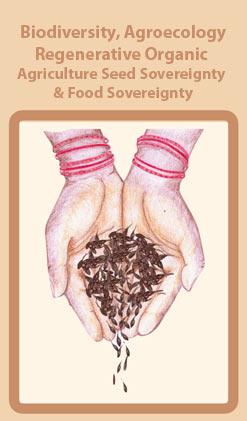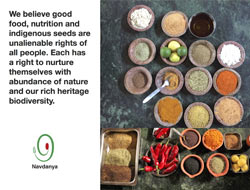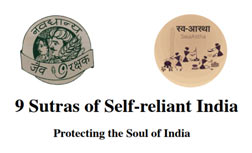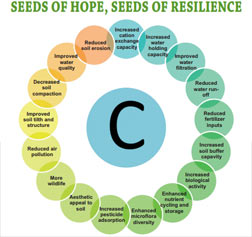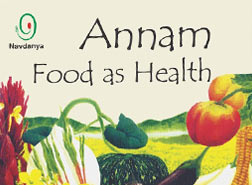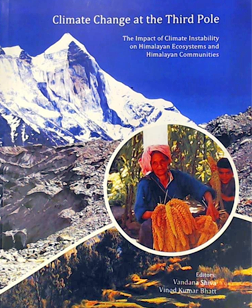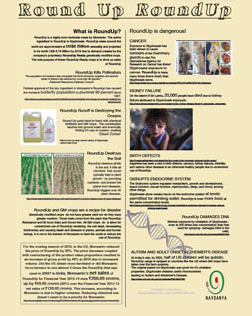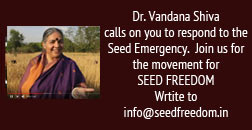
Navdanya started as a program of the Research Foundation for science, Technology and Ecology (RFSTE), a participatory research initiative founded by world-renowned scientist and environmentalist Dr. Vandana Shiva, to provide direction and support to environmental activism.
1984 was the year of the Punjab Violence and the Bhopal tragedy. This violence demanded a paradigm shift in the practice of agriculture. Navdanya was born of this search for nonviolent farming, which protects biodiversity, the Earth and our small farmers.
Navdanya means nine crops that represent India's collective source of food security. The main aim of the Navdanya biodiversity conservation programme is to support local farmers, rescue and conserve crops and plants that are being pushed to extinction and make them available through direct marketing.
Navdanya is actively involved in the rejuvenation of indigenous knowledge and culture. It has created awareness on the hazards of genetic engineering, defended people's knowledge from biopiracy and food rights in the face of globalisation.

It has its own seed bank and organic farm spread over an ares of 45 acres in Uttrakhand, north India.
Navdanya has so far successfully conserved more than 5000 crop varieties including 3000 of rice, 150 of wheat, 150 of kidney beans (rajma), 15 of millets and and several varieties of pulses, vegetable, medicinal plants etc.

